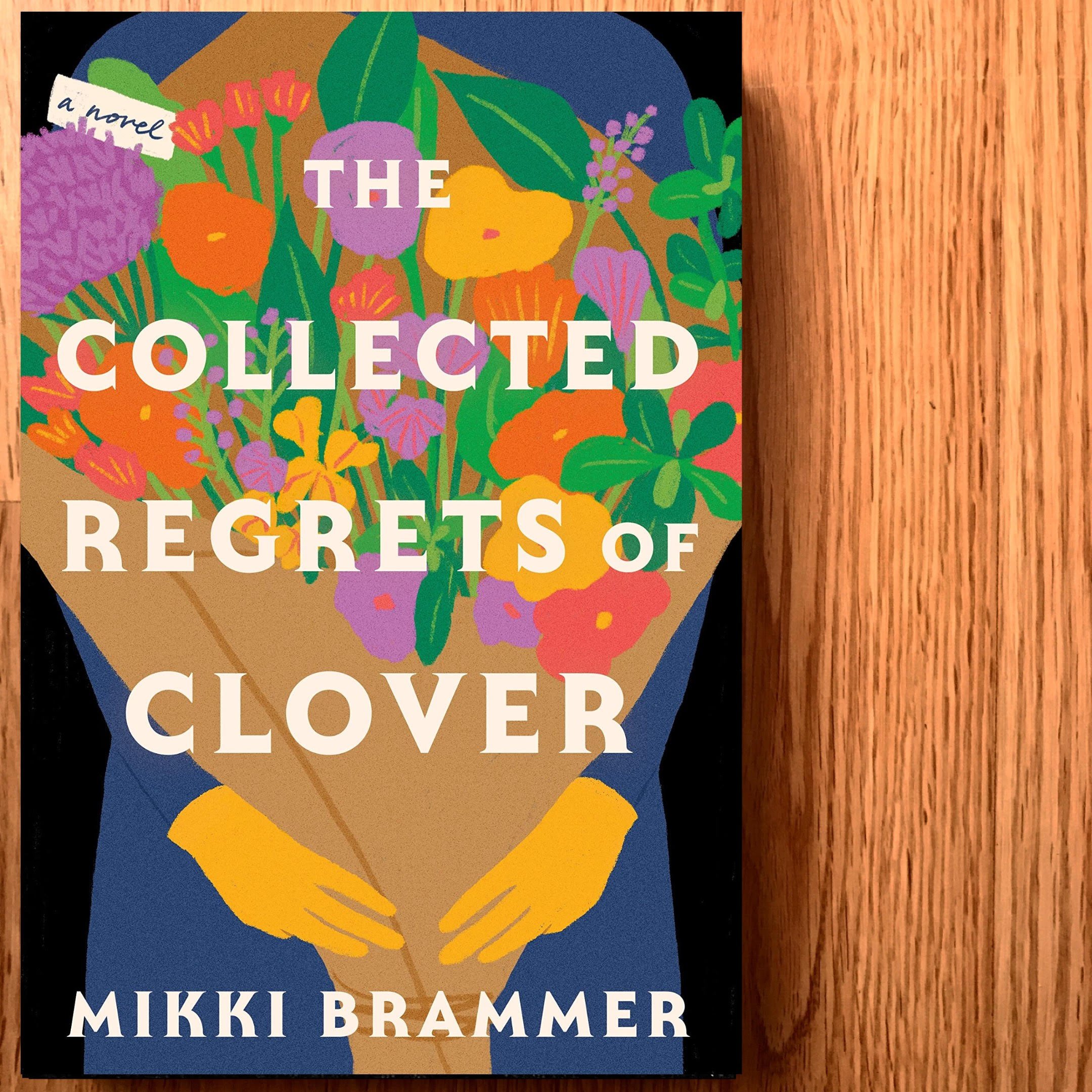By Kaylie Seed
Mikki Brammer’s debut novel, The Collected Regrets of Clover, follows thirty-six-year-old Clover Brooks, a death doula living in New York City. Clover has been surrounded by death her entire life and has found it rewarding to be with someone as their time ends. She has dedicated her life to ushering people peacefully through their end-of-life process, something that is incredibly unique, just like each person she interacts with. Clover spends so much time giving others a beautiful death that she has forgotten to give herself a beautiful life, so when the opportunity arises for her to go on an unexpected trip—hopefully to uncover a long-forgotten love story—Clover steps out of her comfort zone. And she just may end up finding some happiness for herself in the process.
When I started reading The Collected Regrets of Clover, I found myself very much drawn to Clover’s character. To me, Clover is autistic-coded because she possesses many traits similar to my own as an autistic person.* Whether or not this was Brammer’s intention, I strongly identify with Clover. Clover has a strong interest in death and the dying process: autistic people tend to have intense interests surrounding topics, to the point where that may become their life—like Clover becoming a death doula and surrounding herself with this interest. She is socially awkward: oftentimes autistic people are unaware of how their actions or words could affect others. Clover will sometimes speak her mind without really thinking about what it is she is wanting to express; I can relate to that! While Clover is an empathetic person, she can be unsure of her emotions and how to identify them, something I continue to struggle with and spend a lot of time focusing on. A misconception is that autistic people cannot love, show affection or empathy, or have meaningful relationships (both romantic and platonic). This is not true at all and Brammer shows all these wonderfully through Clover. Again, whether Brammer had the intention of creating an autistic-coded character, I very much saw myself in Clover’s words, actions, and behaviours; I do not see myself often in characters.
Brammer’s main topics in The Collected Regrets of Clover are death and the dying process, which are normally stigmatized and considered taboo in many places around the world. The research that Brammer has completed for this novel is evident throughout the book and is shown to the reader through Clover’s endless knowledge on the topic and through the schooling and training she went through to become a death doula. As someone who has a background in gerontology and who has studied palliative care and grief closely, it was very neat to see things that I learned shown through Clover. Brammer also focuses heavily on grief and reiterates to the reader how this process is not only unique to each person, but how it is not something that just goes away—we learn to have it living alongside us. I would recommend The Collected Regrets of Clover to anyone who is wanting to break the stigma surrounding death or who is looking for a unique read that might get you to think differently about death and the dying process. I highly suggest keeping this one on your radar when it hits shelves on May 9th!
*Many autistic people prefer identity-first language, including myself, which is why I used identity-first language throughout my review. Both identity-first language and person-first language are appropriate. Always check with an individual when you are unsure which to use.
Thank you, St. Martin’s Press, for the complimentary copy in exchange for an honest review.

